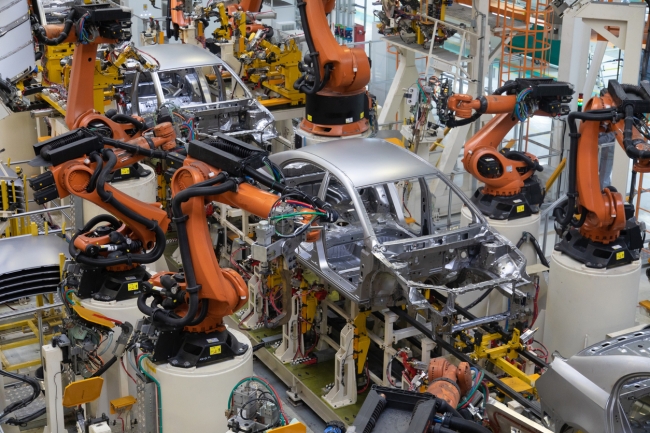2 minute read • published in partnership with ATS
Feature: Striking a balance – efficiency and quality in digital automotive manufacturing
The adoption of digital technologies has revolutionised production processes across all manufacturing industries. Key to the successful implementation of digital manufacturing is the balance between increased efficiency and improved quality. Dean Barnes from ATS looks at how digital manufacturing technologies have transformed automotive manufacturing.
Efficiency gains seek to optimise resources and reduce costs, while quality improvement will typically be targeted toward production build quality and meeting or surpassing customer expectations. Achieving an equilibrium between these factors is pivotal for the success of digital automotive manufacturing.
Automation, computer-aided design & manufacturing (CAD/CAM), and robotics streamline production processes, reducing human error and enhancing productivity. By embracing these technologies, automotive manufacturers can achieve higher output rates, lower production costs, and improved competitiveness in the market. Real-time data analysis and predictive maintenance further optimise operations, ensuring maximum uptime and minimising unexpected downtimes. These advancements in efficiency allow manufacturers to swiftly respond to market demands, minimise waste, and enhance overall productivity within the automotive manufacturing ecosystem.

Digital manufacturing technologies have transformed automotive manufacturing by offering unprecedented opportunities to enhance both efficiency and quality / Picture: Getty/iStock
While efficiency is crucial, the automotive industry must never compromise on quality, particular in areas of passenger safety. Digital manufacturing technologies play a pivotal role in elevating product quality standards. Advanced sensing and inspection technologies enable real-time monitoring and quality-control throughout the production cycle, providing greater levels of product reliability and customer satisfaction. By leveraging digital manufacturing, automotive manufacturers can implement robust quality control measures, reducing the likelihood of recalls and product failures. This, in turn, strengthens customer trust and loyalty which are critical to sustained growth within the highly competitive automotive market.
It is essential that manufacturers recognize the synergistic relationship between efficiency and quality in the context of automotive manufacturing. Efficient processes often lead to cost savings, which can be reinvested in research and development, ultimately improving product quality. Simultaneously, enhanced quality reduces waste and rework, increasing overall efficiency. Furthermore, prioritizing quality contributes to higher customer satisfaction and brand reputation, positively impacting the company’s bottom line.
Digital manufacturing technologies have transformed automotive manufacturing by offering unprecedented opportunities to enhance both efficiency and quality. Implementing a Manufacturing Operations Management system within a holistic Digital Manufacturing Strategy, that strikes the right balance between these factors, is critical for sustained success. By effectively integrating digital manufacturing technologies, automotive manufacturers should strive to implement a harmonious synergy between efficiency and quality, driving sustainable growth, and gaining a competitive edge. Embracing this synergy is key to unlocking the full potential of digital manufacturing and propelling automotive manufacturing towards a future of enhanced efficiency, best-in-class quality, and customer satisfaction.
